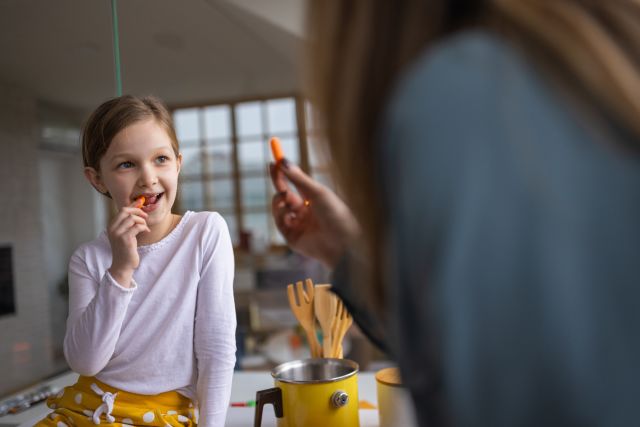Updated on March 15, 2024.
Research suggests there may be a way to train your palate to love some of the good-for-you foods you're not so fond of. It works on kids. Could it work for you?
The secret is a concept called repeat exposure. In a study of elementary school students, the more the children were exposed to the taste of vegetables they disliked, the more they ended up learning to enjoy them.
Repetition equals great taste
In the student study, it took just a couple of months of weekly sampling (and encouragement from teachers) to produce a change of heart (and taste) about the vegetables.
True, it was a study in kids. But other research has suggested that the approach may work in adults, too. That's because, just like in kids, adults tend to experience food neophobia.
Neophobia is a fancy way of saying a dislike for the taste of foods that are new. And who hasn't been a little wary of trying something that seems new or unusual? But once those new foods become familiar through repeated exposure, they often start tasting better—often even good—instead of bad.
A nudge in the right direction
Are you ready to learn to love those healthy fruits and vegetables you just never developed a craving for? You could retrain your taste buds in as little as two weeks of healthy eating. It's a small commitment to make in exchange for the range of beneficial nutrients that come from eating a range of produce. These include vitamins, minerals, fiber, and antioxidants (which fight harmful molecules in the body called free radicals).
If you need more motivation, here are some more good reasons to eat your vegetables today:
- To help protect yourself from skin cancer.
- To keep your blood sugar levels steady (which can help prevent or manage diabetes).
- To control your appetite (to help you maintain a healthy weight).






